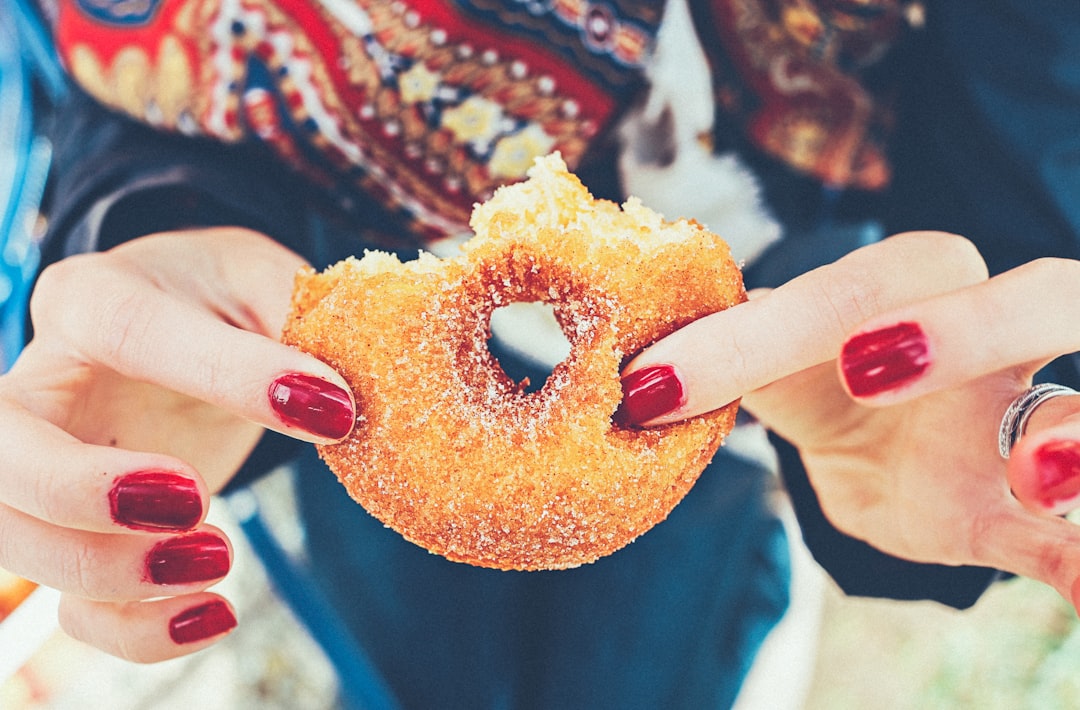We've all heard the term. Maybe it's said in jest, oftentimes it is said very seriously: "Today is my cheat day." And boy does "cheat day" have a stigma around it.
Cheat Day: Defined
According to Urban Dictionary, a "cheat day" is a day on which you are "allowed to break your diet, as complete abstinence is impossible for most people. It also provides a reward for sticking to your nutrition plan over the rest of the week."
The definition goes on to explain that cheat day "cheats" can be as small as having a chocolate muffin with lunch or as large as an entire day comprised of feasting on burgers and fries for every meal.
In Urban Dictionary's example sentence Jenny assures Carol that it's OK that she's eating cheese. "Don't worry, today is my cheat day," Jenny explains.
What's Bad About "Cheating?"
I feel for Jenny. As a young woman who is very "health-conscious," I know how easy it is to get caught up on the hamster wheel of eating "clean" foods, working out six days a week, and perhaps most importantly, NOT succumbing to "unhealthy" cravings like pasta, bread, cheese, meat, cookies, ice cream, chocolate, alcohol, processed sugars, fried foods—the list quite literally goes on and on.
I've spent months at a time following this supposedly healthy regimen to the T, all with the mindset of being "good." A mindset that is perpetuated by the "health" influencers who flood my newsfeed with their workout videos, and once a week post a photo of a decadent grilled cheese sandwich with the caption "Cheat Day Eats!" It's not difficult to absorb the message they're broadcasting: Our worth is reflected by our food choices, and when we choose something other than lean protein and greens, we are breaking the rules; we are "cheating."
And that's where I start to have trouble. By labeling a particular action as "cheating" we are implying another, more insidious, label–that we are "bad." As soon as we buy into that notion of "bad vs. good," "cheating vs. achieving," we place a moral weight on our decisions surrounding food. Slowly, we begin to confirm or condemn our own morality and worth as people based on the food we eat.
How Does It Start?
Let me start with my own journey. I am obsessed with food. I love cooking and baking, I pour over each new Bon Appetite recipe like it's going out of print, and I've been known to travel more than a few hours to try the next best restaurant.
I am also obsessed with food. I spend whole portions of the day planning what I will eat and at what time, I pour over the ingredient lists and nutritional information on every cup of yogurt in the supermarket before I buy it, and I've known myself to cancel a scheduled rest day and opt for an extra gym session when I feel I've eaten too much "bad food" on a night out.
For a while, nothing about these behaviors struck me as unhealthy. I mean, I was doing all the right things to be healthy, right? I wasn't "cheating." I was being so "good." Friends would even comment, "I wish I could be as healthy as you." There's no better confirmation that what you're doing is working than hearing it reflected back to you by your peers. However, after my best friend who had living habits only slightly more extreme than my own admitted that she was struggling with disordered eating, I knew something had to change.

on Pexels
I've never been dangerously underweight, and eight times out of 10, I feel strong during my workouts. But that doesn't mean I've always been the model of health. It doesn't matter how you slice it, obsession will never be healthy. I needed to reevaluate my priorities and my ideas of what it meant to be a healthy, mindful person in the world. So, what can we do?
Intuitive Eating
Everyone's journey is different, just like every body is different. What one person finds helpful, another person might see as restrictive and limiting. So naturally, what works for me might not work for everyone. That said, let me introduce you to my friend, intuitive eating, aka "what's working for me."
Bug I truly believe it has the best chance of working for the most people because it's all about you listening to your body, your cravings, and your level of satisfaction. Intuitive eating means honoring your body's hunger and fullness cues while keeping in mind gentle nutrition.
I am a huge supporter of eating real food, things grown in the ground and not pulled out of a bag. When I was in high school, I read Michael Pollan's book, "In Defense of Food," and his motto "Eat food. Not too much. Mostly plants," deeply informed the way I approached and continue to approach nutrition today.
I fully believe that one can eat organic, farm-raised produce, or follow a plant-based diet, while still eating intuitively. Today, especially while I'm at school, the majority of my meals still consist of leafy vegetables, winter squash, legumes, and unsweetened Icelandic yogurt because it's convenient and it makes my body feel good. But when I wake up at 8 am on a Saturday craving a chocolate chip old-fashioned doughnut, I honor that. And trust me, I enjoy every single guilt-free second of eating it.

on unsplash
Food Is Just Food
When we deny our bodies' cravings and choose to ignore our bodies' wants—regardless of if those wants are a slice of pizza, a fresh salad, a kick-ass HIIT workout, or a day off from the gym—we are building an unhealthy relationship with ourselves.
While discussing the importance of letting go of fear surrounding certain foods and ways of eating, nutritionist Alexis Joseph says, "Because it's harder, because it's impossible, to quantify the effect that honoring food freedom has on our mental wellbeing, we underestimate its power."
She's right. It is hard to quantify the importance our mental state has on our physicality, and it's not something that we're instinctively taught growing up, although it certainly should be. But all that difficulty aside, if you've ever turned down a night out celebrating with friends because you were afraid to eat something other than the macros you could track in your salad at home, it might be time to take a closer look at the rigidity of the "rules" you're living by.

on Pexels
Our bodies are always in flux. We are living, changing organisms, and that's beautiful. When we loosen our grip on rigid regimens surrounding how we eat, and stop glamorizing certain foods as delicious "cheat day" indulgences, while condemning our choice to eat those foods as being "bad," we will begin to see that food has less and less power over our happiness. Food is just food.
Stop Cheating, Start Living
I love to be active. I genuinely enjoy the taste of vegetables (oh hello, roasted eggplant.) And sometimes I want to lay on the couch, watch "Game of Thrones," and eat an entire pizza.
That version of me is not cheating on anything. That version of me is just as worthy and beautiful and accomplished as the me that went for a five mile run and ate a salad for lunch. I love my greasy-finger-pizza-me just as much as I do the sweaty-faced-me in workout leggings. They're both just me. And one is not any better than the other, because I am so much more than my food choices on any one, single day.

on Pexels
Yes, it can be difficult. Shifting the deeply engrained stigmas surrounding what it means to be "healthy" is not an easy task. But every day is a new opportunity to reaffirm our love for our bodies and honor their needs.
When we begin to embrace the mindset of intuitive eating, we find ourselves on the path to a whole new way of living intuitively, and open the doors for more moments of spontaneity, joy, and plain old-fashioned fun to pop up in our day-to-day routines. Pretty soon we'll come to realize that there's no such thing as cheating. There is only living. And personally, I think that's a whole lot more delicious.




